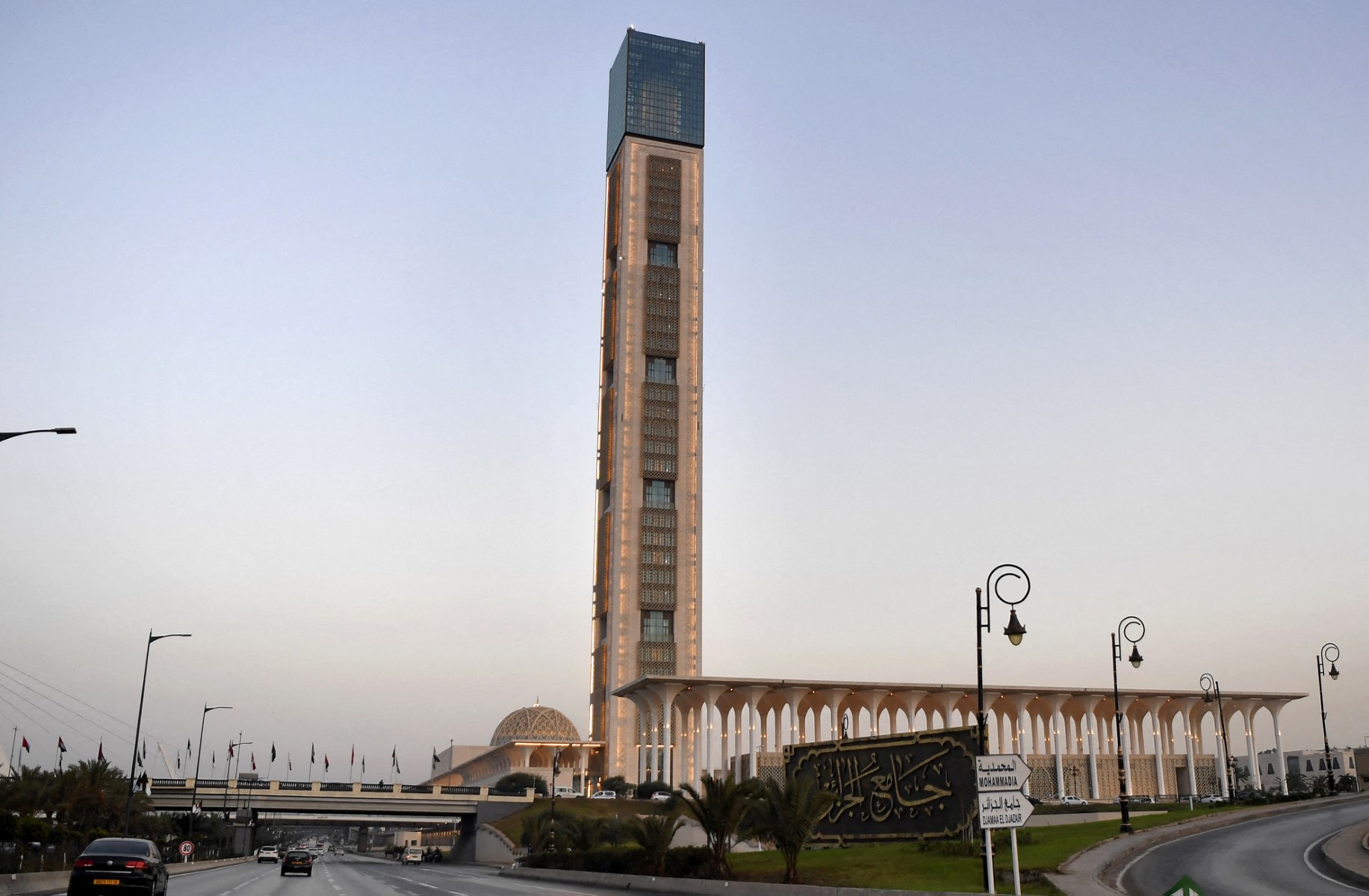Algiers, Algeria — Algerian President Abdelmadjid Tebboune officially inaugurated the Grand Mosque of Algiers, the third largest in the world and the biggest in Africa, on Sunday.
The vast mosque, which can hold 120,000 worshippers, first opened for prayers in October 2020, but Tebboune was suffering from Covid-19 and did not attend.
Known locally as the Djamaa El-Djazair, the modernist structure extends across 27.75 hectares (almost 70 acres) and is smaller only than the two mosques in Makkah and Madinah, Islam’s holiest sites, in Saudi Arabia.
It also boasts the world’s tallest minaret — 267 meters (875 feet) — fitted with elevators and a viewing platform that looks out over the capital and the Bay of Algiers.
The mosque’s interior, in Andalusian style, is decorated in wood, marble and alabaster.
To its critics, the mosque is a vanity project of former autocrat Abdelaziz Bouteflika, who was forced out in April 2019 after mass street protests against his two-decade-long rule.
The mega-project cost more than $800 million dollars and took seven years to build.
Tebboune’s mandate officially expires at the end of this year but the president, elected in December 2019, has not yet made known whether he intends to run for a second term.








